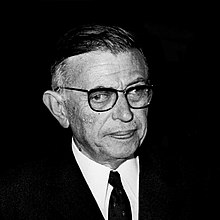Once you hear the details of victory, it is hard to distinguish it from a defeat.
--Jean-Paul Sartre, writer and philosopher (1905-1980)
(48:6.35) From them you will learn to let pressure develop stability and certainty; to be faithful and earnest and, withal, cheerful; to accept challenges without complaint and to face difficulties and uncertainties without fear. They will ask: If you fail, will you rise indomitably to try anew? If you succeed, will you maintain a well-balanced poise—a stabilized and spiritualized attitude—throughout every effort in the long struggle to break the fetters of material inertia, to attain the freedom of spirit existence?
(160:4.13-14) But life will become a burden of existence unless you learn how to fail gracefully. There is an art in defeat which noble souls always acquire; you must know how to lose cheerfully; you must be fearless of disappointment. Never hesitate to admit failure. Make no attempt to hide failure under deceptive smiles and beaming optimism. It sounds well always to claim success, but the end results are appalling. Such a technique leads directly to the creation of a world of unreality and to the inevitable crash of ultimate disillusionment.
Success may generate courage and promote confidence, but wisdom comes only from the experiences of adjustment to the results of one's failures. Men who prefer optimistic illusions to reality can never become wise. Only those who face facts and adjust them to ideals can achieve wisdom. Wisdom embraces both the fact and the ideal and therefore saves its devotees from both of those barren extremes of philosophy—the man whose idealism excludes facts and the materialist who is devoid of spiritual outlook. Those timid souls who can only keep up the struggle of life by the aid of continuous false illusions of success are doomed to suffer failure and experience defeat as they ultimately awaken from the dream world of their own imaginations.
Jean-Paul Charles Aymard Sartre was a French philosopher, playwright, novelist, screenwriter, political activist, biographer, and literary critic, considered a leading figure in 20th-century French philosophy and Marxism. Sartre was one of the key figures in the philosophy of existentialism (and phenomenology). His work has influenced sociology, critical theory, post-colonial theory, and literary studies. He was awarded the 1964 Nobel Prize in Literature despite attempting to refuse it, saying that he always declined official honors and that "a writer should not allow himself to be turned into an institution."
Sartre held an open relationship with prominent feminist and fellow existentialist philosopher Simone de Beauvoir. Together, Sartre and de Beauvoir challenged the cultural and social assumptions and expectations of their upbringings, which they considered bourgeois, in both lifestyles and thought. The conflict between oppressive, spiritually destructive conformity (mauvaise foi, literally, 'bad faith') and an "authentic" way of "being" became the dominant theme of Sartre's early work, a theme embodied in his principal philosophical work Being and Nothingness (L'Être et le Néant, 1943). Sartre's introduction to his philosophy is his work Existentialism Is a Humanism (L'existentialisme est un humanisme, 1946), originally presented as a lecture.
